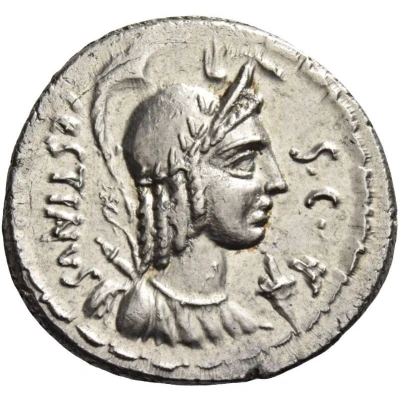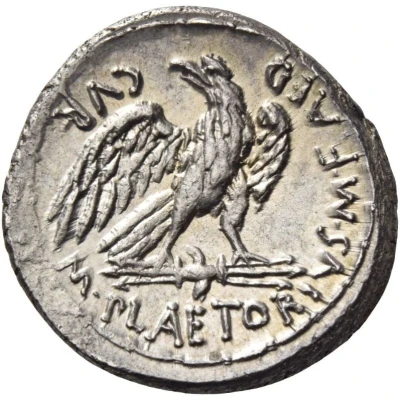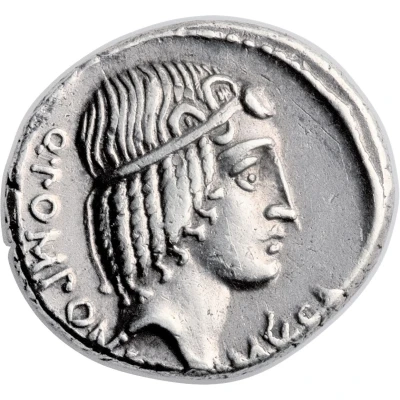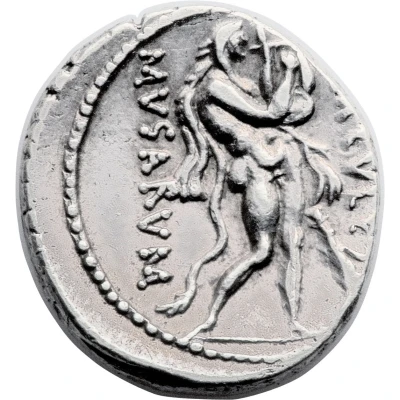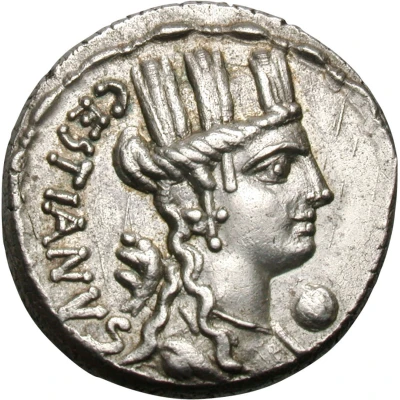
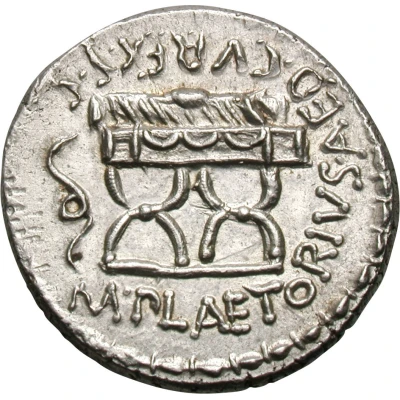

© Heritage Auctions
Denarius Plaetoria: Marcus Plaetorius Cestianus; CESTIANVS / M•PLAETORIVS•AED•CVR•EX•SC 67 BC
67 BC year| Silver | 3.98 g | 19 mm |
| Issuer | Rome › Roman Republic (509 BC - 27 BC) |
|---|---|
| Period | Republic (509 BC - 27 BC) |
| Type | Standard circulation coin |
| Year | 67 BC |
| Value | Denarius (1) |
| Currency | Denarius of 16 Asses (141 – 27 BC) |
| Composition | Silver |
| Weight | 3.98 g |
| Diameter | 19 mm |
| Shape | Round (irregular) |
| Technique | Hammered |
| Orientation | Variable alignment ↺ |
| Demonetized | Yes |
| Updated | 2024-10-06 |
| Numista | N#66908 |
|---|---|
| Rarity index | 95% |
Reverse
Curule chair; behind, control-symbol; bead and reel border.
Part of moneyer mark counterclockwise around the curule chair.
Script: Latin
Lettering: M•PLAETORIVS•AED•CVR•EX•SC
Unabridged legend: Marcus Plaetorius Aedilis Curulis Ex Senatus Consulto
Translation: Marcus Plaetorius, Aedile Curule, By Decree of the Senate
Edge
Plain
Comment
The gens Plaetoria was a plebeian family, of Sabine origin.Interesting fact
The Denarius coin , which was minted in 67 BC during the Roman Republic, features an image of a bust of Marcus Plaetorius Cestianus, who was a moneyer (a person responsible for minting coins) and a member of the Plaetorii family, a prominent family in ancient Rome. The coin's design also includes the abbreviation "CESTIANVS," which is a nod to Cestianus' name and his role in minting the coin. This coin is a rare and valuable example of a Roman Republican-era coin, and its design provides a unique glimpse into the political and social climate of ancient Rome during that time.
